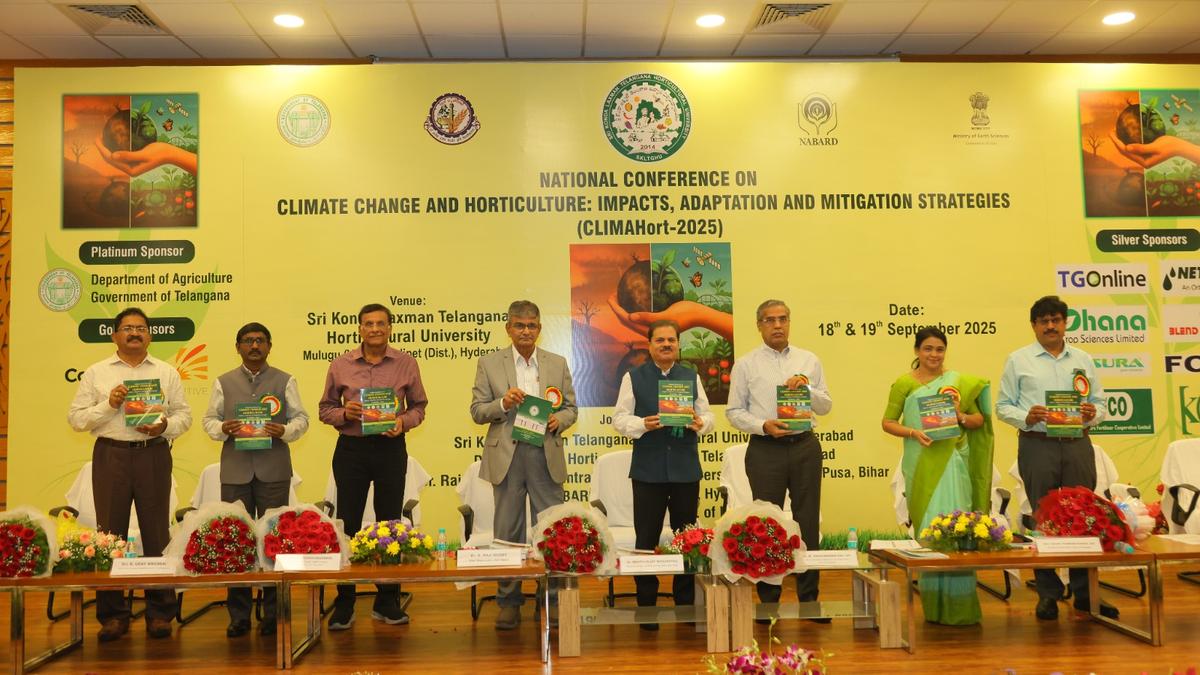Now Reading: Adaptation Key to Tackling Climate Change: IMD Chief
-
01
Adaptation Key to Tackling Climate Change: IMD Chief
Adaptation Key to Tackling Climate Change: IMD Chief

Fast Summary
- Director General of the India Meteorological Department (IMD), Mrityunjaya Mahapatra, emphasized the need for mitigation strategies to address climate change impacts on agriculture, horticulture, and human life.
- He made these remarks at a national conference on “Impact of Climate Change on Horticulture” in Mulugu.
- The conference was jointly organized by Sri konda Laxman Telangana Horticultural University,NABARD,the Rajendra Prasad Central Agricultural University,and the Ministry of Earth Sciences.
- Current weather forecasts are only 40-50% accurate; efforts are ongoing to improve this through multi-forecast models.
- Farmers where urged to adopt global action with local production methods and focus on cultivating climate-resilient crops for better yields and quality.
- Telangana Horticultural University Vice-Chancellor Danda Rajireddy offered technical support to help farmers address challenges arising from climate change in horticulture.
- Key speakers included officials from agricultural bodies such as Agricultural Secretary M. Raghunandan Rao and representatives from NABARD and Borlaug Institute of South Asia.
- A textbook titled “Introductory Agricultural Meteorology” and a book of abstracts were released at the event.
Indian Opinion Analysis
The national conference underscores India’s growing awareness of climate change’s multifaceted impact on agriculture-a critical sector that employs millions across the country. With calls for focused research into resilient crop varieties and improvements in meteorological forecasting accuracy (currently at 40-50%), proactive planning can mitigate future risks to food security.
The emphasis on integrating global practices with local-level implementation highlights a balanced approach toward agricultural adaptation while ensuring farmers remain supported through scientific innovation and policy initiatives like those promised by Telangana Horticultural University. Though, improving coordination across stakeholders-government, academia, financial institutions like NABARD-will be key to turning recommendations into actionable measures that protect both rural livelihoods and national interests.
For further details: Read more
























